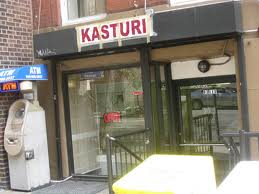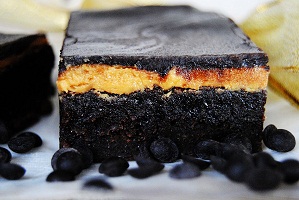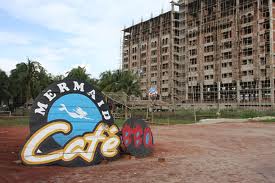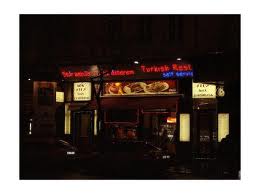| 341, Chalk Circular Road Dhaka,Bangladesh |
| Saturday | 9:00 AM-9:00 PM |
| Sunday | 9:00 AM-9:00 PM |
| Monday | 9:00 AM-9:00 PM |
| Tuesday | 9:00 AM-9:00 PM |
| Wednesday | 9:00 AM-9:00 PM |
| Thursday | 9:00 AM-9:00 PM |
| Friday | Closed |
A century-plus legacy interspersed with triumph and trials, the Alauddin Sweetmeats history reads no less than an epic tale. Originally of Lucknow in India and already famous as a maker of quality sweets, Mr. Alauddin of Alauddin Halwai decided to branch out to a new market. Being a pious Muslim, he was looking for an Islamic region to branch out to, and Chawkbazar in the then Bengal soon caught his eyes as a potential market. In 1864, he completed the move to Bengal and Alauddin Halwai found a new home in the heart of Chawkbazar. To further integrate itself into the culture of the region, in 1894, Alauddin Halwai shed off its Indian surname and took the moniker Alauddin Sweetmeat—which went on to become a household name for decades to come.
Throughout the late 19th century and a major part of the 20th century, Alauddin Sweetmeats fared well, serving premium products at reasonable prices and slowly, yet steadily, winning the hearts of Bangalees with its delectable delights. Alauddin Sweets did not start with many items: roshgollas made of the freshest ‘chhana’; gulab jamuns drenched in thick syrup and soft, creamy shandesh. For the few it did offer, Alauddin Halwai mastered the recipe and maintained the finest production quality.
The sweet-makers faced their first true challenge in 1971, during the liberation war of Bangladesh. In those turbulent times, they saw their shops being ransacked, looted, and, to put the rotten cherry on top of the increasingly bitter cake, burnt too. Even then, in such limited capacity, Alauddin Sweets managed to keep going on, providing its loyal clientele with the best possible sweets under the circumstances.
After liberation, Alauddin Sweets transcended the boundaries of a for-profit business and undertook major projects to help build up the war-ravaged country. The owners set up mosques, orphanages and primary schools—a commendable activity that continues even today. Presently, the company runs two orphanages and madrasas in Savar and Gazipur, the latter housing over 300 orphans. These schools and mosques are still run as part of the company’s sense of social responsibility.
In 1983, under the guidance of Chairman Mr. Al-Hajj Masum, the sweet-makers turned their shop into a limited company and proceeded to further success. The newly formed company went international, opening branches in London and New York. During this period, Alauddin introduced the Laccha Shemai—sweet vermicelli—and people just could not get enough of it. Demand for this quickly crossed boundaries, with even expatriate Bangladeshis comprising a significant proportion of Alauddin’s consumer base. Soon, it started exporting to Saudi Arabia, Malaysia, Singapore and India among other countries. Business flourished, and it seemed as if the only way onward was up.
However, bad luck struck in the 1990s. By 1999, assuaged with medical complications, both the Chairman and Managing Director had to step down, creating a void that would not be filled until much later. Alack of capable management thereafter saw losses piling up and branches closing one after another. Yet, orders from high-profile clients, such as Sajib Wajed Joy, son of incumbent Prime Minister Sheikh Hasina, who asked them to cater for his wedding, did not stop. Within ten years, the business folded. Even the familiar blue and red swirls of Alauddin Sweetmeats gradually faded from public view, the company was by no means out for good.
In 2010, Mr. Maruf Ahmed had become a part of the family through marriage, and under his stewardship, Alauddin Sweetmeats has risen to its forte again. The company has since opened up four branches around Old Dhaka and also managed to gain a foothold in the international market.
The main branch of Alauddin today sits tucked away in a busy corner of Chawkbazar, its home since its inception in the 19th century. At first glance, the shop is not ostentatious. The small floor area coupled with only minimal décor gives little away about its history or the extent of its operations. Yet, this small shop is the hub of an operation that spans continents.
The main work goes on in the two Alauddin Sweetmeats factories—one in Nazimuddin Road near Bakshibazar, the other in Chawkbazar. Its menu now comprises of over 50 items, diversifying into dry snacks such as toast biscuits and even the savory chanachur. Popularity of laccha shemai continues; expatriate Bangladeshis once again comprising a significant share of the clientele. Thus Alauddin exports other varieties of shemai, toast biscuits, chanachur and also its famous ghee or clarified butter.
In order to ensure the same quality across the two factories, Alauddin has a worker rotation policy. After a certain period of time, workers are regularly switched between factories so that they get hands on experience on how things are done in either factory. This way, workers can compare notes on production processes so if inconsistencies in practices are found, they can be easily taken care of. Moreover, to ensure hygiene, the management mandates wearing gloves and regularly cleaning up the premises. To make sure that the products do not go bad during delivery to the branches Alauddin’s fleet of vans take to the streets early in the morning. This helps them to avoid the heat and traffic that may quality and hamper the distribution schedule.
Alauddin Sweetmeats sources its ingredients from local suppliers such as Bashundhara, Fresh, and so forth. While not very keen to divulge explicit numbers, Mr. Ahmed hinted that Alauddin Sweets, among other ingredients, goes through at least three sacks of flour and over 800 liters of milk in a day. Currently, aside from traditional sweets such as roshgollas, chamcham, gulab jamun and so on, Alauddin has extended into producing varieties of barfis, motichur laddus, mawa laddus and even cupcakes. For festivals, Alauddin has introduced gift boxes. Since it does not use preservatives of any kind, any sweets unsold at the end of the day are disposed of. Only the dry goods with longer shelf-lives are left on the racks for up to a week. After that, even those are discarded.
Alauddin Sweetmeats does not believe itself to be rivalry with any of the other sweet-makers. In fact, when asked to comment on this, Mr. Ahmed actually praised some of them, particularly Banoful and Co for their admirable business model and practices. The core vision of Alauddin is to provide a wide variety of quality sweets at affordable prices and the best service to the customers. This approach, the company believes, will ensure a sustained flow of customers regardless of what the other firms in the market are doing. While this philosophy might seem too idealistic in the current scenario, the fact that Alauddin enjoys heavy traffic even though there are other, more modern sweet shops in the vicinity, affirms their belief. At every major occasion, be it the Bangla New Year or Eid or even when results of public exams are published, Alauddin Sweetmeats sees a manifold increase in demand. During Ramadan, the company receives a steady flow of catering orders to iftar parties starting from private events to prestigious government orders. Overall, in the span of a year, the sweet makers cater to over a thousand events, ranging from corporate occasions to government programs to weddings. Even in the export market, Alauddin does not face much competition. Alauddin’s legacy and brand value has long established a loyal following and the present management has successfully tapped into that. As a result, despite other companies in the market, Alauddin enjoys a healthy share of international demand. In fact, its only competition comes from Indian exporters such as Haldirams. Mr. Ahmed opined that while not superior in quality than that of Alauddin or other local exporters, Indian firms have access to better packaging for their goods and huge funds for marketing campaigns, so they can capture the public interest more effectively. This gives them an edge.
While Alauddin faces little, if no trouble from competition, government bureaucracy holds the company back. Of particular concern is the trend to stereotype the food producers as adulterers who use of formalin and other such toxic additives. Even though Alauddin uses no preservatives, the company is often under needless scrutiny from the authorities. This is particularly demotivating because adulterers get away with little more than a slap to the wrist while reputed companies such as Alauddin have to share the blame and see their brand name being tarnished needlessly. Another source of woe are tax authorities.
Alauddin Sweetmeats, as a limited company, has to be audited at regular intervals. Its finances are transparent and up to date. Yet, tax officials find irregularities in the paperwork sometimes which they promise will ‘disappear’ if the company agrees to compensate them on agreed upon terms. Political turbulence is very damaging—a day of hartal means most products will be left unsold, and will then have to be disposed off. A week-long hartal means almost the entire week’s worth of production will be wasted, even though the company will still have to pay for the costs. Hartals and political agitations are most harmful for the business, according to Mr. Ahmed As for the future, Mr. Ahmed’s expansion plans center around updating the existing factories and, if possible, opening up another. Challenges lie ahead: the capital required in huge and suitable land is hardly available. With the company’s operations based in Old Dhaka, he hopes to expand into ‘New’ Dhaka and open shops abroad. He hopes to automate certain processes in the retail end but governmental assistance is yearned for. Although sweet-making has been classified as an industry, the producers are yet to receive any government benefits. According to him, granting land in the BSCIC industrial area, or even tax rebates, would help Alauddin realize its goals.
Does fortune favor the bold? Bangladeshis time and again have shown the extent of their bravery and willingness to sacrifice themselves for a common goal. This very spirit won us our independence, and Alauddin Sweetmeats embodies this same fierce, indomitable spirit that makes us who we are. Since its inception in the British era to its journey as part of newly formed Bangladesh, the company, through its perseverance and pursuit of quality, Alauddin Sweetmeats has ingrained itself as an inseparable part of our culture. This spirit of being unbowed, unbent and unbroken saw the company overcome numerous setbacks and will undoubtedly keep the blue and red of Alauddin emblazoned for the foreseeable future and beyond.

0 5040

0 3407

1 4022

0 3978

0 4159

1 5145

0 4169

1 9446

0 3536

0 3650

0 3883

0 3928

0 3847

0 3713

0 4884